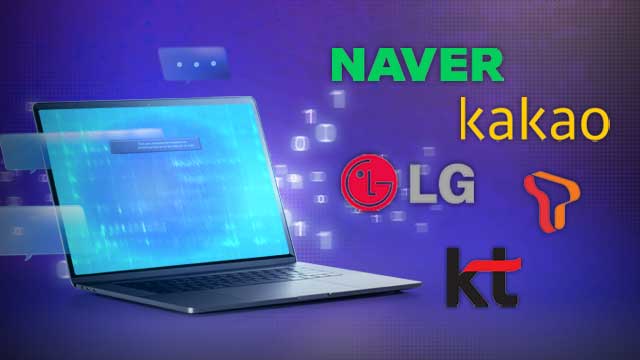TL;DR:
- Korean IT giants, including LG, KT, Naver, and Kakao, are launching their own hyperscale AI platforms to excel in the AI era.
- Hyperscale AI enables independent thinking, learning, and judgment by processing vast amounts of data autonomously.
- These companies aim to break free from dependence on global Big Tech platforms and explore new business opportunities in Korean and other languages.
- The focus is on developing platforms for large language model (LLM) services, catering to B2C and B2B sectors in finance, law, healthcare, education, and manufacturing.
- LG’s EXAONE 2.0 achieved impressive improvements, KT plans to launch Mi:dm, and Naver is unveiling HyperCLOVA X. Kakao Brain is set to launch KoGPT 2.0 and KoChat GPT.
- Startups like Upstage are also making significant progress, showcasing their technology in private AI markets.
Main AI News:
Korean tech firms are making significant strides in the hyperscale AI landscape to secure their positions in the ever-evolving AI era. In a bid to survive and excel, LG, KT, Naver, and Kakao, along with other major players, have unveiled or are soon to introduce their cutting-edge hyperscale AI platforms. These moves are strategic responses to the AI revolution, which is set to reshape the industry, much like the impact of the internet and smartphones.
Hyperscale AI, epitomized by the likes of U.S. AI giant OpenAI’s ChatGPT, stands out for its ability to think, learn, and make judgments by assimilating vast amounts of data independently.
The companies’ overarching goal is to establish their individual footholds without depending on the platforms of global Big Tech firms. This independence is crucial as it enables them to capitalize on emerging business opportunities rooted in Korean and other languages.
The focus is on developing platforms capable of forecasting AI’s large language model (LLM) services, unlocking untapped potential in both the business-to-consumer (B2C) and business-to-business (B2B) sectors. The envisioned applications span various industries, including finance, law, healthcare, education, administration, and manufacturing.
Leading voices in the industry assert that seizing the opportunity in the AI market is vital for these domestic IT companies. The AI market is being likened to the ‘ChatGPT moment,’ paralleling the significance of the ‘iPhone moment’ in history. Even Apple is rumored to be investing in its own LLM service. The general consensus is that failing to lead in the AI domain now could result in insurmountable challenges in the future.
By developing robust AI platforms in-house, these Korean companies can venture into international markets with confidence, effectively catering to both Korean consumers and B2B customers. Moreover, the platforms allow them to provide services in Korean and other foreign languages, empowering them to expand their reach beyond the Korean market.
The development of such platforms is perceived as a crucial survival strategy in the fiercely competitive AI landscape. The versatility of AI applications makes these platforms invaluable for business growth and adaptability.
Among the frontrunners in this race, LG has showcased its latest hyperscale AI platform, EXAONE 2.0, beating local competitors to the finish line. The 2.0 version boasts impressive improvements, including a 25 percent reduction in processing time and a 70 percent decrease in memory usage compared to the original version released in 2021. EXAONE 2.0’s extensive training on 45 million specialized documents and 350 million images equips it to comprehend and respond to queries in both Korean and English.
Other industry players are also stepping up their game. KT is gearing up to launch Mi:dm, its own hyperscale AI platform, in the latter half of the year. With aggressive investments and revenue targets set, KT is determined to close the gap with global leaders.
Naver, the internet giant, is all set to unveil HyperCLOVA X, its hyperscale AI platform, with a strong focus on Korean data learning capacity. Naver’s confidence in its platform is evident, projecting it to become the largest Korean language AI platform specializing in commerce, finance, law, and education.
Meanwhile, Kakao Brain is gearing up to introduce KoGPT 2.0, an upgraded version of its hyperscale AI model, KoGPT. Building on this platform, Kakao Brain plans to launch an AI chatbot service called KoChat GPT in the second half of the year.
As the AI race heats up, startups are also entering the fray with impressive progress. Upstage’s generative AI model, securing the top spot on the Open LLM Leaderboard with a remarkable score of 72.3, has proven its prowess in the private AI markets.
Conclusion:
The surge of Korean IT firms developing their own hyperscale AI platforms indicates a strategic move to establish their positions independently in the AI market. This trend points to a fiercely competitive landscape where these companies aim to seize new business opportunities and provide advanced AI services to consumers and businesses. The development of robust AI platforms signifies a strategic imperative for these companies to survive and thrive in the ever-evolving AI landscape, shaping the future of the market.

